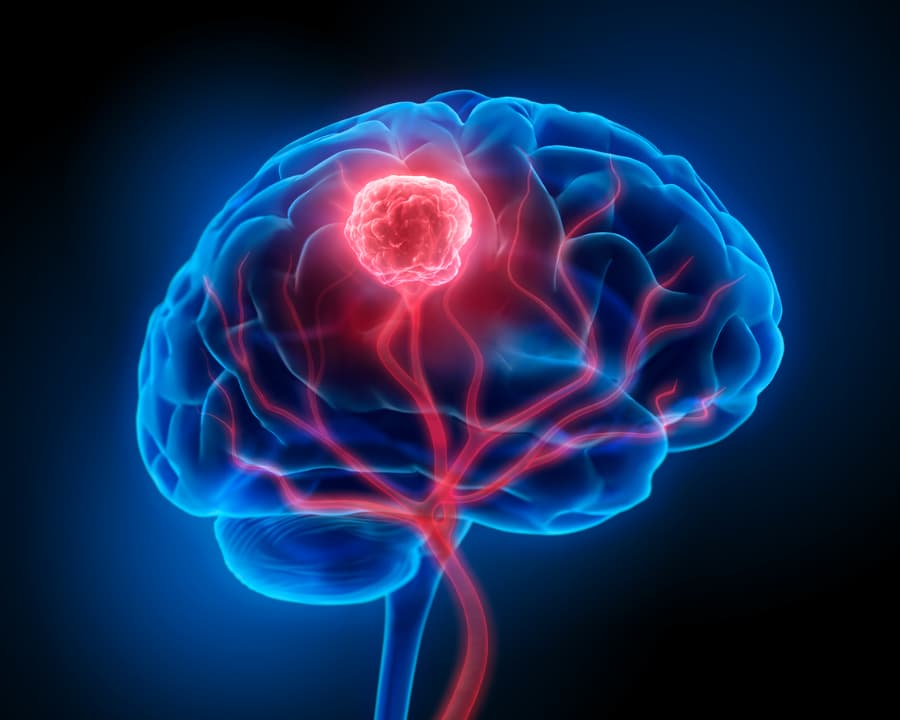
New Jersey Cancer Care Joins Regional Cancer Care Associates
Affiliation provides oncology practice with expanded resources as it pursues its commitment to providing patients with the latest therapies and best possible outcomes.
HIPAA Alert: Potential Data Breach Learn More
Questions on Oncology, Hematology and/or Infusion Clinical Services due to COVID-19 Crisis – CALL 833-698-1623
Important Information for Our Patients Regarding the Coronavirus.
RCCA Providing Area Cancer Patients with Access to Care During Coronavirus Outbreak
RCCA Offering Patients Virtual Visits During Coronavirus Pandemic
Brain cancer develops when abnormal cells begin to multiply and divide out of control, forming tumors. The disease can arise for many different reasons and may begin in many areas of the brain. Serving people in New Jersey, Connecticut, Maryland, and the Washington, D.C., area, Regional Cancer Care Associates (RCCA) and its experienced, expert medical oncologists treat a variety of brain cancers. Learn more about brain cancer symptoms, diagnosis, and treatment options.
Brain cancer is the presence of a cancerous tumor in the brain. Such tumors can arise in many different areas in or near the brain. The size of the tumor can range from small to large, and symptoms may not present themselves until the tumor has grown fairly large. Brain cancer is rare, with the chances of an adult developing a tumor of the brain or spinal cord being less than 1 percent.
Brain tumors can develop due to several causes, including hereditary syndromes and radiation exposure that damages cells and causes them to mutate and become cancerous. In many cases, the cause of a person’s brain tumor is unknown. In addition to cancer that begins in the brain, cancers that arise in other parts of the body – including the breast and lung – can spread, or metastasize, to the brain. This article focuses on cancer that first develops in the brain rather than spreading to that organ.

Different types of brain cancer can be fast-growing or slow-growing. This growth rate is a factor in determining the severity of a patient’s cancer. Types of brain cancer include:
Hereditary syndromes are responsible for some brain tumors, placing the children of parents with a history of brain cancer at elevated risk. However, most cases of the disease are not hereditary. A history of radiation exposure also is a risk factor for brain cancer because radiation can cause changes to a person’s DNA that cause cells to mutate and become cancerous.
Brain tumor symptoms can differ depending on the nature, location, and size of the tumor. Early warning signs can vary, with symptoms typically growing worse over a short period. Some common symptoms include:
In evaluating a person with symptoms that may indicate brain cancer, physicians first take an extensive history and conduct a thorough neurological examination, assessing the patient’s reflexes, vision, strength, hearing, coordination, and balance. Physicians also may perform other assessments and order blood tests to explore other potential causes of the person’s symptoms. Imaging tests to seek to identify brain tumors or other abnormalities include:
If indicated, neurosurgeons may perform a surgical procedure to remove a tissue sample for further testing.
If cancer is identified, a staging process is followed to assign the tumor a grade from 1 to 4. A Grade 1 tumor is slow-growing, while a Grade 4 tumor is fast-growing and more likely to be fatal.

In determining the best course of treatment for a patient with brain cancer, oncologists consider factors including the tumor’s type, size, and location, as well as the patient’s overall health. Treatment can include:
During surgery, surgeons work to remove all tumor cells. If total tumor removal is successful, further treatment may not be necessary. But if a tumor is only partially removed, other treatment methods are used in an effort to fully eliminate it. Surgery can be performed through craniotomy, a process that involves removing a portion of the skull, with the portion then put back in place following the procedure. Some patients may be candidates for endoscopic brain surgery, a noninvasive procedure that involves inserting a thin tube through the nostril to enable surgical instruments to reach the tumor.
Depending on the tumor’s type and location, patients may be awake during surgery. This allows surgeons to confirm in real time that important brain functions are not being adversely affected by the surgery.
Radiation therapy directs energy beams to a specific area to eliminate cancer cells. In patients with brain cancer, a typical radiation therapy schedule can entail five days of treatment each week for two to six weeks.
This treatment approach involves the use of strong medications to kill cancer cells. Patients often receive chemotherapy through intravenous infusion, although some chemotherapy is delivered via pill. Chemotherapy may be used alongside other treatment methods, such as radiation therapy.
Targeted therapy involves use of medications that identify and bind to specific chemicals, or receptors, on the surface of cancerous cells, interfering with the function of those cells to prevent them from spawning more cancerous cells or causing the cells to die.
Immunotherapy harnesses the power of the body’s own defenses to identify and fight cancer cells. It can be used alone or alongside chemotherapy and other treatments.
While there is no way to treat brain cancers through alternative therapies, these interventions still can help patients deal with their brain cancer diagnosis. Some therapies that can improve the quality of life for patients include relaxation exercises, art, music, exercise, or meditation.
Brain cancer treatment can be accompanied by complications. During and following treatment, there are many steps patients can take for side effect management. Physicians typically prescribe medication to relieve pain associated with brain cancer treatment. This can include headache-relief medication or anti-seizure medication. In addition, changing your diet can help ensure that you have adequate nutrition to keep symptoms at bay. Rehabilitation and physical therapy also can be ideal for people who must regain function after treatment, helping patients re-learn essential motor skills and gain muscle strength.
Physicians also may recommend support groups for psychological and emotional support. Having people to talk to about one’s diagnosis can help patients cope with their condition.
If a tumor cannot be treated, enrolling in hospice or palliative care can improve a patient’s quality of life. This way, symptoms can be managed and patients can receive the necessary support.
There are a variety of resources online or in-person for brain cancer patients and caregivers. Asking a trusted physician for recommendations can give patients the chance to bond with others over their condition. In addition, communicating with loved ones and healthcare providers can help patients feel less alone after being diagnosed with brain cancer.
Recent years have seen the development of many new therapies and treatment strategies for brain cancer, giving patients considerable cause for hope. Clinical trials and research are underway to further improve brain cancer outcomes.
With 20 community-based care centers across New Jersey, Connecticut, Maryland, and the Washington, D.C. area, Regional Cancer Care Associates treats patients who have already been diagnosed with cancer and assists other physicians in confirming a diagnosis. If you or a loved one is experiencing worrisome symptoms, visit your primary care provider or an appropriate specialist right away. To learn more about brain cancer care or to request an appointment, contact us today.
Doctors at Regional Cancer Care Associates (RCCA) are specialists in brain cancer. These experts have proven their leadership as professors, clinicians and researchers and were trained at the world’s most distinguished medical institutions. RCCA offers high-quality, advanced treatment near your home. We work with you and your family to make sure your care is second to none.
You can set up an appointment by calling the RCCA location nearest you. Or, for more information, call (844) 346-7222.

Affiliation provides oncology practice with expanded resources as it pursues its commitment to providing patients with the latest therapies and best possible outcomes.

Commitment, dedication and passion are attributes that show through in every aspect of care at Regional Cancer Care Associates.

Recent research has caused many healthcare professionals to reconsider their approach to screening men for prostate cancer. That’s because the disease (already the second most

Regional Cancer Care Associates is one of fewer than 200 medical practices in the country selected to participate in the Oncology Care Model (OCM); a recent Medicare initiative aimed at improving care coordination and access to and quality of care for Medicare beneficiaries undergoing chemotherapy treatment.